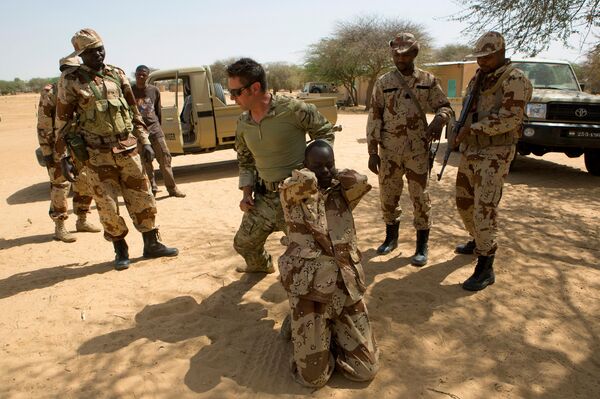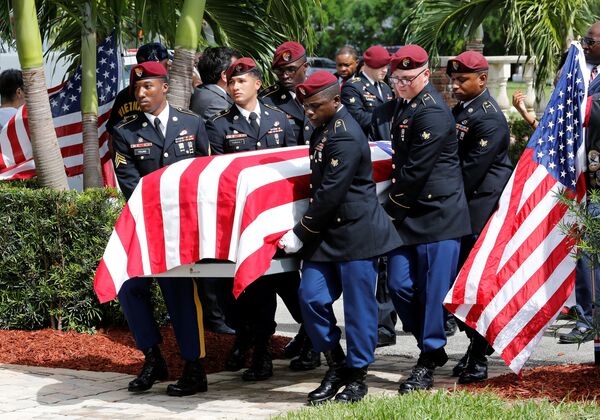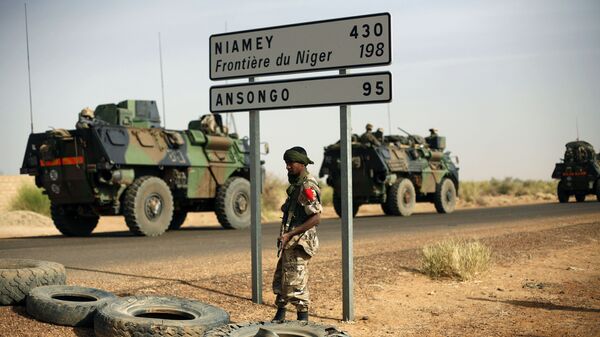While Washington is yet to confirm that it has reached a deal, such an operation would bring Niger into the sphere of countries targeted by the US' ongoing controversial policy of drone warfare.
Sputnik Spoke with Gilbert Khadiagala, Professor of International Relations from the University of Witwatersrand, Johannesburg, about what the consequences of such a development could be, as well as US policy in Africa more generally.
Sputnik: Can you start by explaining why the US has a military footprint in Nigeria in the first place — what is it doing there?
Professor Gilbert Khadiagala: Essentially, it is dealing with the threat of Boko Haram, al-Qaeda in the Maghreb, and other terrorist groups. So there are a number of what the US considers as terrorist groups now operating in the area. Niger is important, but so too are other countries like Nigeria and Chad, so that entire region is really at the center for the US confronting what it calls "negative forces" in Africa, particularly terrorist forces.

Sputnik: It is widely reported that US drone warfare has killed thousands of civilians in countries like Pakistan and Somalia to Yemen, is it possible that Niger's authorities could come to regret inviting armed US drones into their air space if civilians start getting killed by them, or does the "fight against terror" take precedence?
Professor Gilbert Khadiagala: I think there are two sides to it: if civilians get caught up in the conflict, then there will be public outcry against US intervention in the region. But, for now, I think the priority is that they want to get rid of the terrorist groups operating in the region. The invitation for drones was actually a bit surprising because you don’t expect a government to come out frontally, and invite the US to bring their drones, given the controversy surrounding the usage of drones, even in the Horn of Africa, in Somalia and so on. But, I could also see it as a way for the Nigerian regime to actually bring more resources, because these countries are actually using the "war on terror" as way to bargain and leverage other resources from the US and Western countries.

Sputnik: Do you see the US military activities in Africa under Trump increasing, compared to the Obama-era, and what are the major differences between the Africa policies of the two?
Professor Gilbert Khadiagala: The Obama policy was more even-handed, there was a military component and then there were other areas, such as economics and diplomacy and so on. The Trump policy is targeted clearly on the militarization of Africa, and I think that is the biggest change in emphasis.
The US military is going to play a bigger role in fighting terrorism in Africa and Trump has been very unapologetic about that issue and his administration says that Africa is only important when we can send our military there to deal with the scourge of terrorism. So, that’s a very big shift and I think it’s going to grow significantly.


